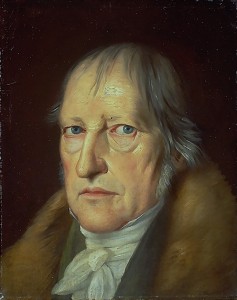 Describing the exact starting point of Hegel’s Phenomenology of Spirit is always an issue. Oftentimes people fall back on the idea that the outset of the Phenomenology is without presuppositions, a claim which I will contest.
Describing the exact starting point of Hegel’s Phenomenology of Spirit is always an issue. Oftentimes people fall back on the idea that the outset of the Phenomenology is without presuppositions, a claim which I will contest.
I claim that Hegel, at the outset of the Phenomenology, presupposes certain things which are central to all ref lective thought.
These presuppositions are not mere assumptions but will rather be proven by the project of the Phenomenology itself. This is why Hegel starts the Phenomenology with knowledge (as an activity).
The methodology employed by Hegel is inf luenced by his predecessors – Kant and Fichte – and even taken up from them to a certain extent. First, I will argue that Hegel’s predecessors already stumbled upon a certain characteristic of ref lective thought itself, something that is always presupposed when one ref lects, even if this is upon one’s own ref lecting.
Second, I will claim that it is this characteristic of thinking itself that is presupposed at the outset of the Phenomenology and is expressed in the Phenomenology in a way that shows an indebtedness to Kant and Fichte.
Author: Jo Badisco (MPhil)
